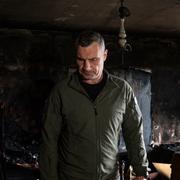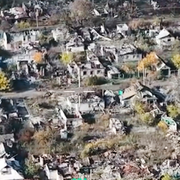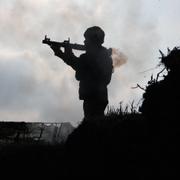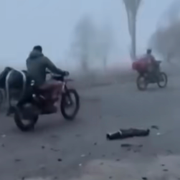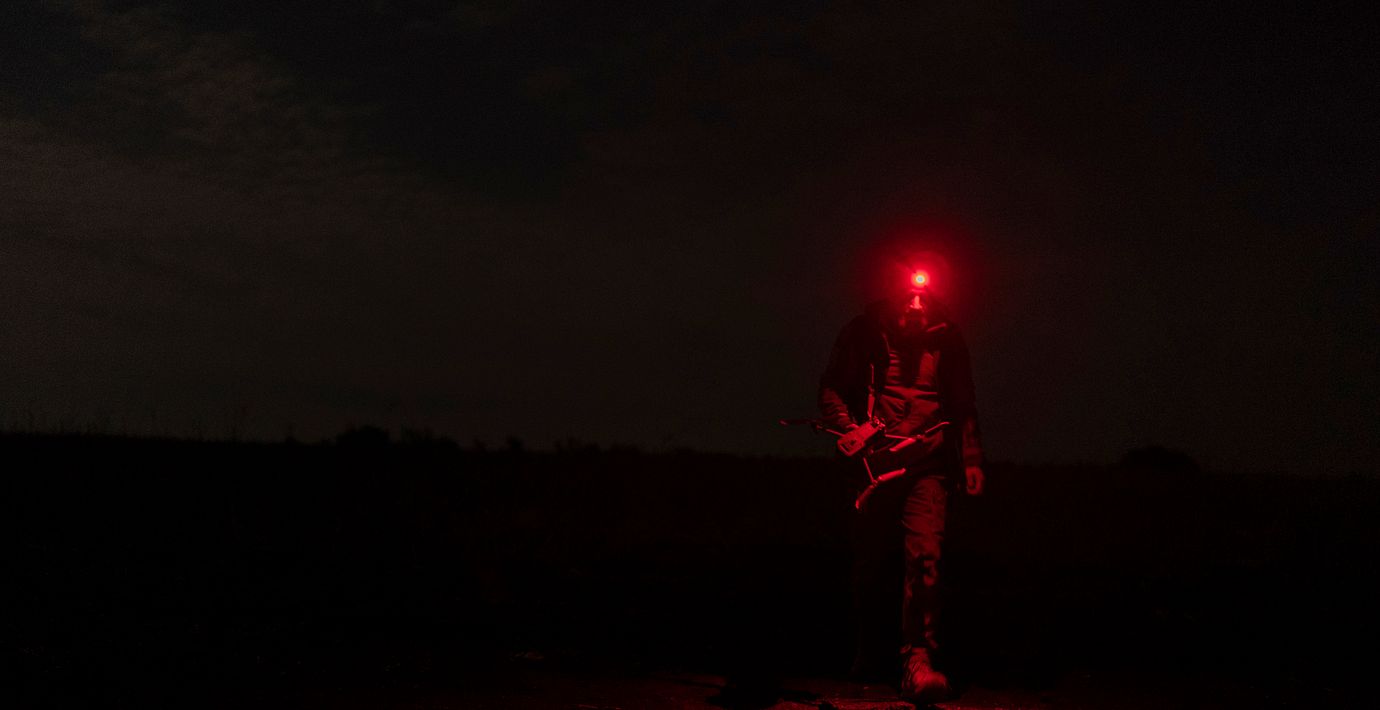
Läcka: 20 000 soldater från Wagner stupade i Bachmut
Runt 20 000 ryska legosoldater stupade i striderna om Bachmut i fjol, innan Ryssland tog kontrollen över den ukrainska staden. Det visar läckta dokument som oberoende ryska medier tagit del av.
Wagnergruppen rekryterade minst 48 000 ryska fångar som skulle få sina straff avskrivna mot att de stred vid fronten i ett halvår. Siffran har kunnat slås fast tack vare numreringen av deras id-brickor, som fanns i de läckta dokumenten från Wagnerledaren Jevgenij Prigozjins företag, enligt Mediazona.
Företagets räkenskaper över utbetald kompensation till stupade soldaters familjer visar att de före detta fångarna utgjorde 17 175 av de 20 000 ryska soldater som stupade i Bachmut.
bakgrund
Striden of Bakhmut
Wikipedia (en)
The battle of Bakhmut was a major battle between the Russian Armed Forces and the Ukrainian Armed Forces for control of the city of Bakhmut, during the eastern Ukraine campaign, a theatre of the Russian invasion of Ukraine. It is regarded by military analysts to be the bloodiest battle since the end of World War II.
While the shelling of Bakhmut began in May 2022, and the battle being considered to have begun in early July with Russian offensives on the distant approaches to the city, the main assault towards the city itself started on 1 August after Russian forces advanced from the direction of Popasna following a Ukrainian withdrawal from that front. The main assault force consisted primarily of mercenaries from the Russian paramilitary organization Wagner Group, supported by regular Russian troops and reportedly Donetsk People's Republic militia elements.
In late 2022, following Ukraine's Kharkiv and Kherson counteroffensives, the Bakhmut–Soledar front became an important focus of the war, being one of the few front lines where Russia remained on the offensive. Attacks on the city intensified in November 2022, as assaulting Russian forces were reinforced by units redeployed from the Kherson front, together with newly mobilized recruits. By this time, much of the front line had descended into positional trench warfare, with both sides suffering high casualties without any significant advances. By using repeated assaults composed of former convicts, Wagner troops were able to gradually gain ground. and by February 2023, they captured territory in the north and south of Bakhmut and threatened encirclement, forcing Ukrainian forces to slowly pull out into the city, and the battle turned into fierce urban warfare. By March 2023, Russian forces captured the eastern half of the city, up to the Bakhmutka river, and continued to advance into Ukrainian-controlled parts of Bakhmut.
On 20 May 2023, Bakhmut had been mostly captured by Russian forces, with the Ukrainian military claiming control of a small strip of the city proper along the T0504 highway. Nonetheless, Ukraine started counterattacks on Russia's flanks, seeking to encircle the city. Around the same time on 25 May, Wagner began withdrawing from the city to be replaced by regular Russian troops, amidst heavy internal squabbles between Wagner leadership and Russian high command.
In September 2023, President Zelensky said Ukraine would continue to fight to retake Bakhmut.
Although, initially a target with lesser tactical importance, Bakhmut became one of the central battles of the Russo-Ukrainian War, with it gaining significant symbolic importance for both sides, as President Zelensky declared it to be the "fortress of our morale", and due to the heavy investment of manpower and resources both sides used to control the city. The battle of Bakhmut has been described as a "meat grinder" and a "vortex" for both the Ukrainian and Russian militaries. The intensity of the battle and the high number of casualties suffered by both sides during the fight, alongside the trench and urban warfare, has drawn comparisons to the Battle of Verdun in World War I, as well as to the Battle of Stalingrad in World War II. It has been called the most prominent urban battle of the war, with it being reported as the site of "some of the fiercest urban combat in Europe since World War II".
Omni är politiskt obundna och oberoende. Vi strävar efter att ge fler perspektiv på nyheterna. Har du frågor eller synpunkter kring vår rapportering? Kontakta redaktionen
